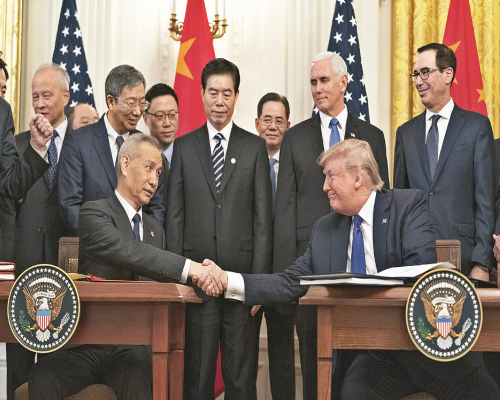Trade War Concerns: Consumers May Bear the Ultimate Burden

Economic experts are raising concerns over the new tariffs imposed by former U.S. President Donald Trump on Mexico, Canada, and China, warning that it could escalate into a full-blown trade war. There are growing fears that these tariffs will lead to higher inflation, ultimately affecting consumers.
What Are Tariffs and How Do They Work?
Tariffs are taxes imposed on imported goods from other countries. Governments use tariffs to protect domestic industries, generate revenue, or retaliate against trade policies. The newly imposed tariffs by Trump fall under this category.
Why Were Tariffs Imposed on Mexico, Canada, and China?
Trump justified the tariffs as a measure to boost the U.S. economy, protect American jobs, and increase tax revenue. The decision was also aimed at addressing the growing fiscal deficit and managing supply chain disruptions caused by global economic fluctuations.
How Will Consumers Be Affected?
Ultimately, the burden of tariffs falls on consumers, as businesses pass on the additional costs through higher prices. Analysts from Capital Economics predict that the annual inflation rate could rise from 2.9% to nearly 4% due to these tariffs. If this happens, inflation in the U.S. could return to mid-2023 levels.
Which Products Will Be Affected?
• From Mexico: Higher prices for fruits, vegetables, alcohol, and beer.
• From Canada: Increased costs of timber, wheat, and potatoes.
• Automobile Industry: The car manufacturing sector will be significantly impacted. A report from TD Economics suggests that the tariffs could increase the price of American-made cars by up to $3,000.
With these tariffs, the trade landscape is set to become more volatile, raising concerns over economic stability and its long-term impact on consumers worldwide.























